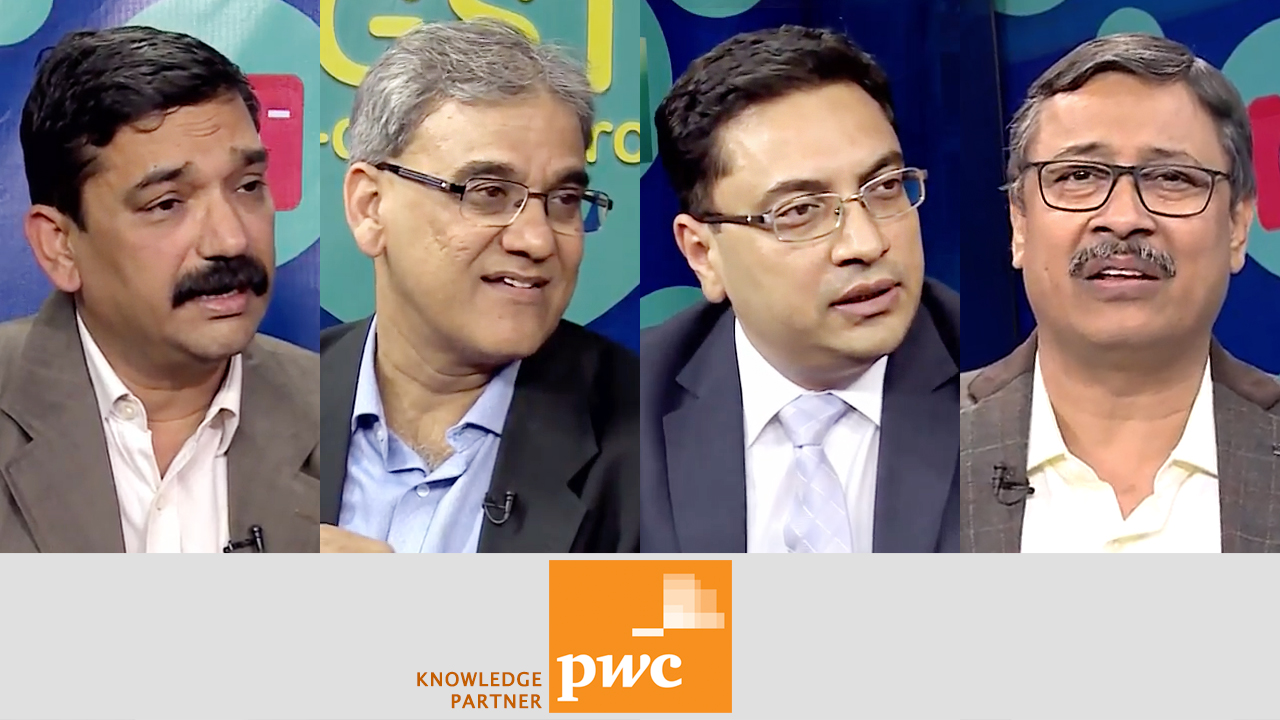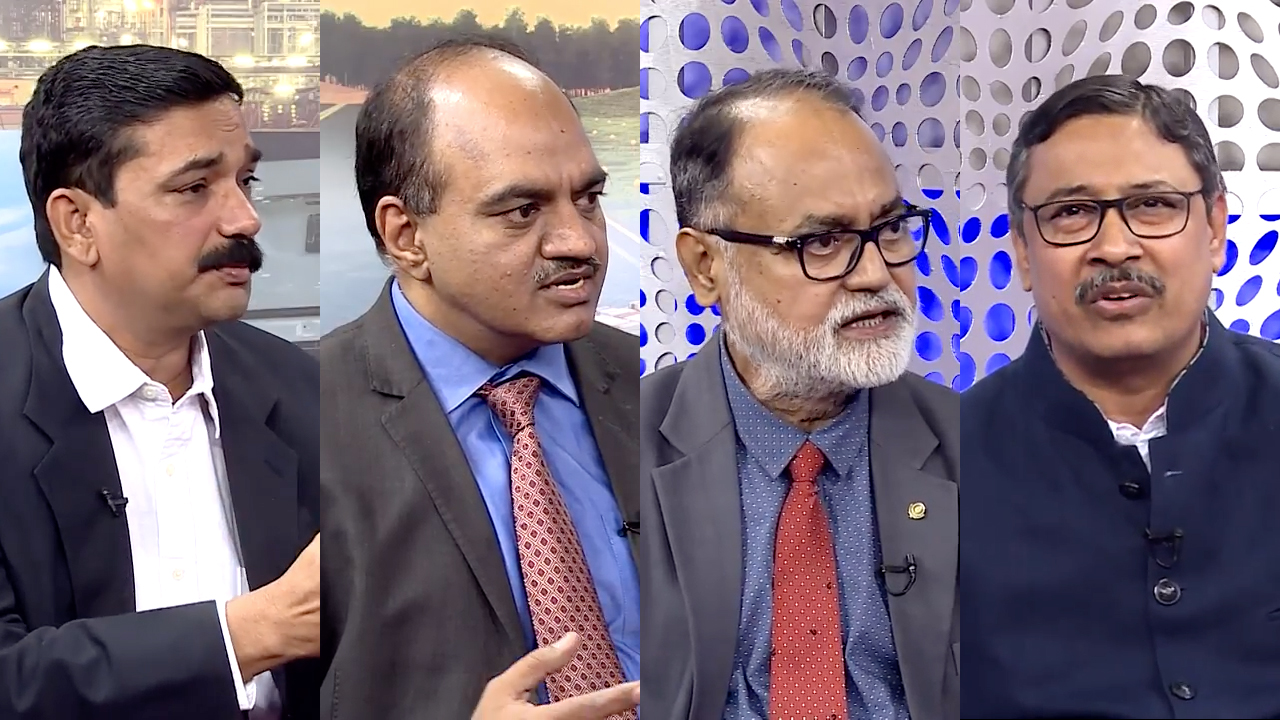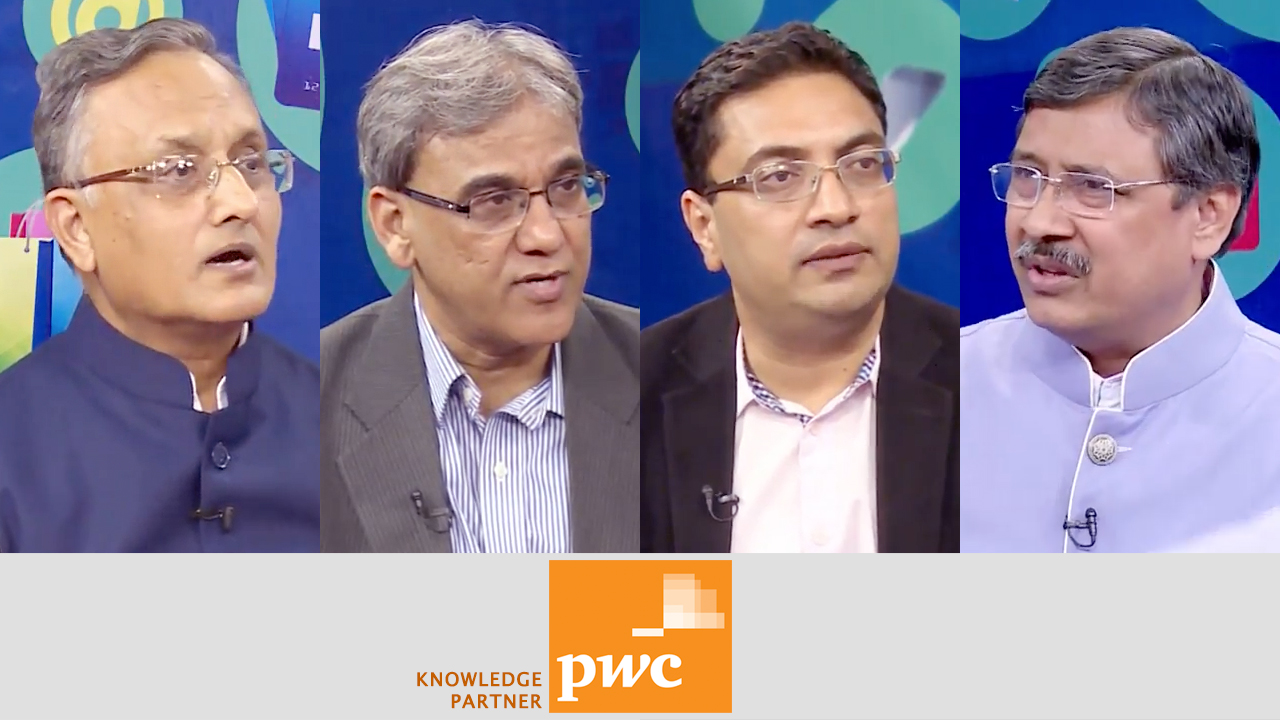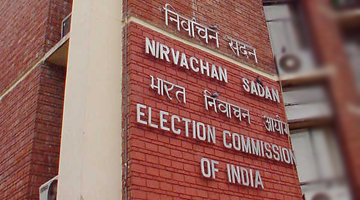TIOL - COB(WEB) - 531
DECEMBER 08, 2016
By Shailendra Kumar, Editor
THE GST caravan has suffered tangible setbacks if we go by the inconclusive nature of deliberations at the previous two GST Council meetings. The next meeting is scheduled for the coming Sunday and Monday. And the two substantive issues crying for a consensus are the cross-empowerment and the approval of the Model Laws. In addition, a blow from an unexpected quarter was also registered when some of the States raised the issue of demonetisation resulting in contraction of the economy and finally leading to a tangible slide in their revenue collections. That basically means an adverse impact on their revenue kitties and in turn on the compensation basket which is going to be determined by factoring in the revenue collected in 2015-16 as the base year and then the mean of 2016-17. They also demanded the postponement of the GST implementation by at least three months.
If we leave aside the political-cum-fiscal implications of demonetisation on the GST, the key area of worry for the Centre is the growing toughening of stands by the States. In fact, a few 'Insiders' told me that there are strong elements of intransigence in their attitude towards many issues. And the Draft Model Law is one victim of such a shift in their attitude. At the last meeting, an effort was made to speed up the approval of model laws chapter-by-chapter. But they could do it only for NINE chapters. There are many more left. But one issue which appears to have divided even the States is the demand of the Coastal States to tax supply of goods and services in the territorial waters. And their rationale is that they alone should have the right to tax any supply taking place in the sea of waters close to the baseline of their landmass. This also includes the high sea sales. Although there may not be very high revenue at stake (about Rs 2000 crore annually) but the Coastal States seem to be harping on the principles of proximity to all supplies made in the territorial waters. Such a demand has also come up because the Coastal States feel that they would not have such a golden opportunity in future to earn a 'slice' of taxing rights from the Centre. If they are gifted such a right, they would be earning SGST for their own kitties and the revenue may grow in future.
However, some of the land-locked States are learnt to have opposed such a demand. But, why should they do it? What gives the locus standi to such States when their sister States are bargaining hard with the Centre? And their key concern perhaps is nothing but the revenue. If the coastal States get the power to levy SGST on supplies of goods and services in the territorial waters, such revenue would go to their kitties. Conversely, if they do not get such powers, the Centre would be collecting IGST and 42% of such revenue would be credited to the divisible pool from which even land-locked States get their shares. So, it is nothing but a battle for a slice of revenue by all. And since the GST Council has not arrived at any consensus, the Draft IGST law has not defined the expression 'State'. If we go to Section 2 (Definitions), sub-section 25 reads - "State" means ... It has been left blank so as to be filled in future.
If we visit the definition of India in sub-section 12, it means its territorial waters, continental shelf, exclusive economic zone or any other maritime zone. It also includes the seabed and the subsoil underlying the territorial waters; the air space above its territory and territorial waters; and the installations, structures and vessels located in the continental shelf of India and the exclusive economic zone of India, for the purposes of prospecting or extraction or production of mineral oil and natural gas and supply. Going by the historical instances and the judicial precedents, it has always been the Union of India which has exercised its jurisdiction over the territorial waters, Continental Shelf and the EEZ. In fact, all such territories of waters find a place in the larger realm of sovereignty which the Union of India enjoys. The Constitution of India itself enjoins the Centre to discharge its sovereign powers over such territories and it would be unheard of decision if the same sovereignty is 'sliced off'!! Even if such an attempt is made, as per my limited understanding, it would be ultra vires to the letter and spirit of the Constitution.
This brings us to some of the international conventions. The 1982 United Nations Convention on the Law of the Sea has defined a territorial sea as a belt of coastal waters up to 12 nautical miles (22.2 km) from the baseline of a coastal country. And the territorial sea is generally seen as the sovereign territory of a country although peaceful passage of foreign ships can be allowed. Such sovereignty also extends to the airspace over and the seabed below. And EEZ generally extends from the outer limit of the territorial sea to a maximum of 200 nautical miles (370 km) from the territorial sea baseline. So, going by the global maritime traditions, the ownership of territorial waters is always associated with the sovereignty of a Republic and it cannot be sliced into parts so as to be owned by the coastal States. In this regard, the demand of the land-locked States appears to be more legitimate than others.
Let's now visit the second most contentious issue of cross-empowerment. Going by the 101st Constitution Amendment Act, Article 246A makes it very clear that both the Centre and the States have the legal rights to impose and collect the levy of GST. When the Constitution itself is so clear that both have equal rights to levy CGST and SGST on the same transaction how does the question of exclusive right to tax any set of assessees find its feet? Does the amended Constitution really give such 'gifting right' to two competing constitutional creatures? A clear-cut NO! Such an act of generosity would amount to infringement of the constitutional provisions as unlike the CST, each entity here imposes and collects for itself and the revenue goes to the respective funds created as per the Constitution. Though one may argue that delegation of power to collect like the CST may not pose serious legal handicaps but the scenario here is different as the Central taxes along with the state taxes are being subsumed together by the GST and the taxable event is going to be common unlike the CST concept where each tax is levied on a different taxable incidence.
So, in this background, the issue at stake is nothing but an administrative arrangement. The demand of some States that since small assessees are more close to them and they are powerful political constituencies, they alone should have the right to tax them, is legally not tenable. Why should the Centre give up its right to have a control over them particularly when all the parties know that such small assessees constitute as high as 92% of the total number of assessees. No tax authority anywhere in the world would like to willingly forfeit its right to have control over a large mass of taxpayers. In this background, the larger question now is - what would happen to the solemn Doctrine of One Assessee One Authority as mouthed by the Union Finance Minister? A solution lies in a sensible administrative arrangement of a vertical split formula whereby both the parties would have equal authority but they would mind their behaviour to cause minimum trouble to the taxpayers. To achieve such a noble goal, they need to thrash out certain bilateral understanding for audit and preventive activities which are achievable goals.
Let's hope all the parties take pragmatic views of the legal and constitutional realities of the issues and arrive at a consensus at the forthcoming meeting without resorting to voting option. So far, the GST Council, a mini-Parliament in itself, has shown great spirit of comaraderie and a passion for consensus. Such a healthy culture should not be sacrificed for smaller gains when almost all the key issues have been sorted out by consensus. If some of the States continue to be stubborn, I am sure, the Centre may opt for the voting option this time to break the logjam!
|









 Download PDF
Download PDF








